Trump May Not Benefit From Economy In 2020
New polling suggests that the President may not be benefiting from the relatively healthy economy as much as expected.
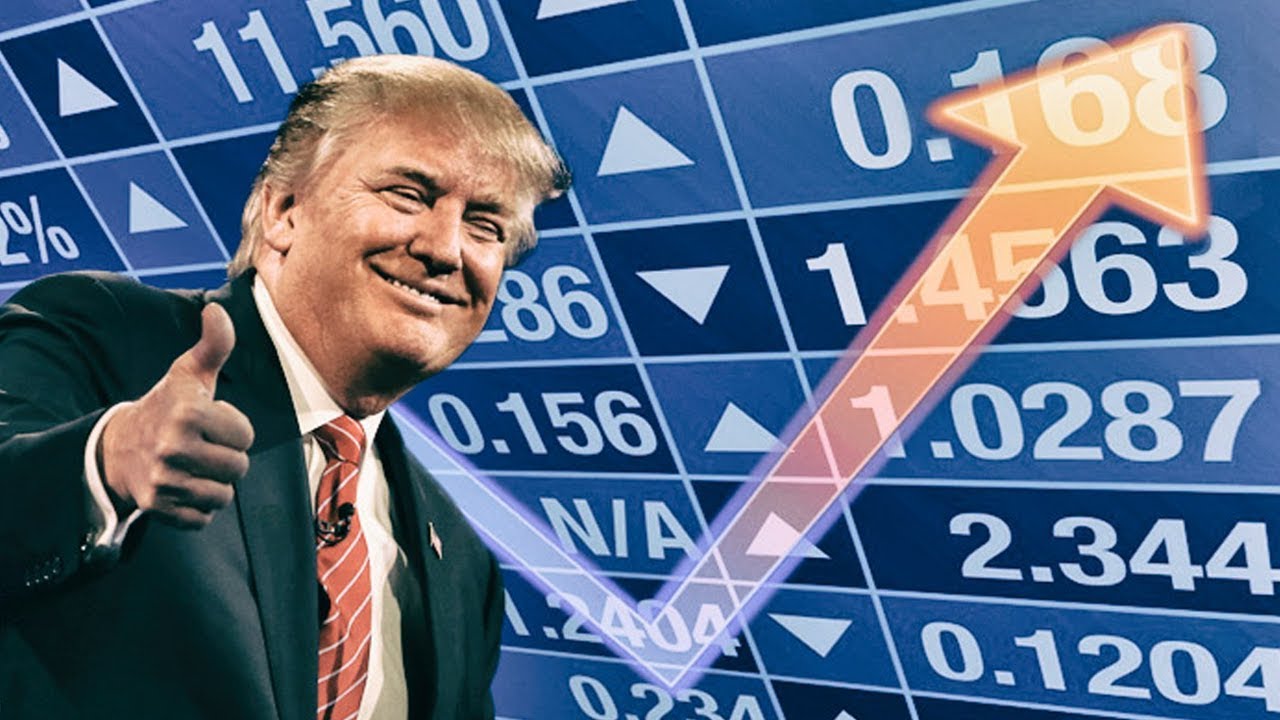
Heading into 2020, Republicans running for re-election in Congress, as well as the Trump campaign itself, are quite obviously relying on a strong economy to help save them from an electorate that seems increasingly hostile to the GOP. As it turns out, though, the President doesn’t seem to be benefiting from the state of the economy as much as the GOP might hope:
Americans give Trump mixed reviews for his economic stewardship despite the growth achieved during this presidency, according to a new survey by The Associated Press-NORC Center for Public Affairs Research.
Nearly two-thirds describe as “good” an economy that appears to have set a record for the longest expansion in U.S. history, with decade-long growth that began under Barack Obama. More people consider the economy to be good today than did at the start of the year.
But significantly fewer approve of Trump’s handling of the economy, even as it remains a relative strength compared with other issues. The survey indicates that most Americans do not believe they’re personally benefiting from his trade policies. And only 17% said they received a tax cut, despite government and private sector figures showing that a clear majority of taxpayers owed less after the president’s tax overhaul passed in 2017.
These doubts create a possible vulnerability as Trump highlights the economy’s solid performance in his campaign for re-election in 2020. During two nights of debates last week, almost every Democratic presidential candidate found ways to criticize the president by decrying the wealth gap.
Massachusetts Sen. Elizabeth Warren said it was evidence of “corruption.” Vermont Sen. Bernie Sanders railed against the concentration of wealth in the three richest Americans, while former Vice President Joe Biden said Trump thinks Wall Street, not the middle class, built America
Christel Bastida, 39, a neuroscience researcher, was active in Democratic politics last year during the Senate race in Texas and plans to run for Houston City Council.
“I personally don’t feel more secure financially and I think that’s the case for a lot of people who are middle class,” she said. “A lot of working-class people are not comfortable now. I know there were tax breaks that were supposed to be helpful to people, but it turns out they’re helpful to billionaires and corporations and I’m neither.”
Nearly half of Americans, 47%, approve of Trump’s handling of the economy, but his overall approval rating — 38% — is low compared with what past presidents have enjoyed in strong economic conditions. Only about 4 in 10 Americans approve of his handling of taxes and trade negotiations.
The public skepticism has persisted even as the president routinely congratulates himself on the economy, including the 3.6% unemployment rate and stock market gains.
He tweeted last week: “The Stock Market went up massively from the day after I won the Election, all the way up to the day that I took office, because of the enthusiasm for the fact that I was going to be President. That big Stock Market increase must be credited to me.”
The 2017 tax overhaul was sold by the administration as a way to return more income to everyday Americans. But the poll shows nearly half say they think their taxes stayed the same or are unsure; 33% said they increased. This suggests the tax cuts may have been too modest to notice or were eaten up by daily expenses, or that people were disappointed with their refunds.
That feeling of being left behind has energized Democrats seeking to turn out the vote next year. The tax overhaul disproportionately favored corporations and the wealthy, allowing Democrats to say the tax cuts were fundamentally unfair.
Democrats are more likely than Republicans to say the amount they paid in taxes increased in the last year, 42% versus 25%, while more Republicans say their taxes decreased, 25% versus 10%.
The public is also not exactly thrilled with Trump’s tariffs and trade wars:
A mere 15% of Americans said the tariffs will help them and their family.
With regards to the national economy, just 26% said the tariffs will help, a sharp decline from 40% who said that last August. About half said the tariffs will be harmful.
Republicans, in particular, are less optimistic: Half think Trump’s tariffs will help the economy, down from 7 in 10 in August.
Ryan Brueggemann, 37, of New Berlin, Wisconsin, runs a dairy farm with his brother. He supports Trump but dislikes the tariffs, though he understands why the president has deployed them so frequently.
“I don’t believe it’s a great business practice to use them,” Brueggemann said. “But it came down to the point where our country is being taken advantage of unfairly and that the only way other nations were going to listen to what we wanted to renegotiate and even get them to the table to think about it was to get their attention by putting some tariffs on products.”
Generally speaking, the economy has indeed been performing well, although not quite as spectacularly as President Trump has been representing to the public. Jobs growth has generally been steady from where it was during the final four years of former President Obama’s tenure, for example, and the latest estimate of first quarter Gross Domestic Product growth showed that the economy grew at a healthy 3.1%. While there have been some concerns about a slowdown as we head into 2020, those concerns have largely been pushed to the wayside as the Federal Reserve makes clear that it is prepared to lower interest rates at the signs of a slowdown, especially if it’s needed to counteract the impact of the President’s trade wars.
Additionally, at least according to the polls the President does appear to be benefiting somewhat from the state of the economy. While his overall job approval numbers remain at historic lows, his job approval with respect to the economy is the one bright spot for the President. As I’ve suggested before, this would seem to be an indication that the President and his party stand to benefit from a strong economy as we head into 2020.
What these poll numbers suggest is that the actual impact of the economy on the President’s prospects for 2020 may be far less than what one otherwise might expect. Ordinarily, a healthy economy such as what we have now has benefited the incumbent in a Presidential candidate. It was true for President Reagan in 1984, President Clinton in 1996, President George W. Bush in 2004, and President Barack Obama in 2012. By contrast, a weak economy usually coincides with ill political fortunes for the incumbent, as was saw happen for President Ford in 1976, President Carter in 1980, and President George H.W. Bush in 1992. This poll seems to indicate that we could see something of a historic anomaly in 2020 in the form of an incumbent President losing notwithstanding the state of the economy. In that regard, it would be consistent with what we saw in 2018 when Republicans suffered historic losses in the House of Representatives notwithstanding the fact that the economy was in good shape at the time.
Therefore, Republicans talking up the economy may want to keep in mind that this might not do them much good when November 3rd, 2020 rolls around.

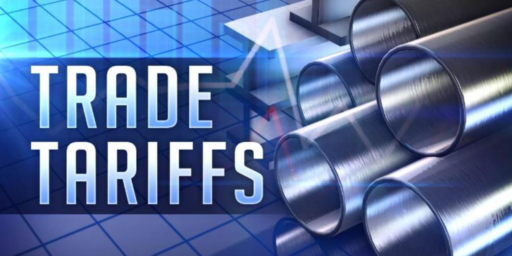
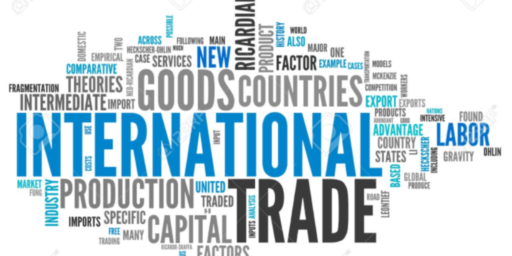
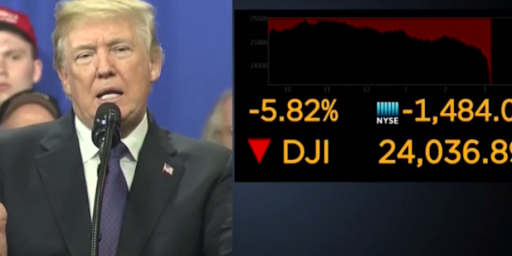
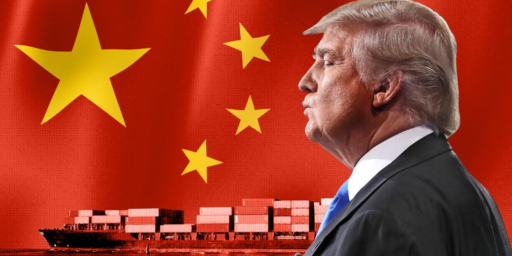
The last time we tossed out an incumbent sans a bad economy or a party split: arguably 1828. It’s not that Trump can’t be beat. It’s that given the economy, a Trump defeat would be historic.
But if anyone can pull it off, I’m sure he can.
@Hal_10000:
It should be noted that Adam’s defeat while in the midst of a strong economy was due largely to the imposition of unpopular tariffs…
I see two problems for him if Trump is counting on a “good” economy to bolster re-election:
1) It’s really only been good for people like me – heavily invested in stock market valuations and dividends – the investor class. Most of America is still really struggling, many people with multiple jobs, coal-dependent communities worse than during the 2016 campaign, factories still closing and laying off workers.
2) Trump has really not done anything himself to make it happen – Obama still gets a ton of the credit for pulling the economy out of the crapper after Bush-era banking and finance deregulation destroyed huge sectors. Trump biggest “achievement” is the “tax cut” which, as it turns out, reduced taxes for wealthy people but was neutral-to-bad for everyone else.
@Tony W:
When the stock market goes up, so does my portfolio. Great. I’m still not happy that he’s treating the economy like a Jenga tower.
Of course he’s benefiting from the economy. Without it, he’d be toast. It’s the only thing keeping him aloft at all.
@Neil Hudelson:
Yep. 19th century politics revolved heavily around tarriffs (and the related issue of slavery). Different time. But a fun exercise to go through it.
@Tony W:
As well Obama should get credit. A “decade-long” expansion at a point 2½ years into Trump’s first term would mean 7½ years of that expansion happened on Obama’s watch, plus carryover effects.
@Kylopod:
For a significant segment of his supporters, keeping brown people in camps helps him stay “aloft” as well.
Charlie Kirk is on Twitter saying the United States has a record 121 months of growth and if a Democrat is elected president that streak will end.
people have pointed out to him that Donald Trump has only been president for 29 months, but so far it hasn’t registered.
@Scott F.: “As well Obama should get credit. A “decade-long” expansion at a point 2½ years into Trump’s first term would mean 7½ years of that expansion happened on Obama’s watch, plus carryover effects.”
And if you look at the charts, there is no obvious ‘Trump bump’.